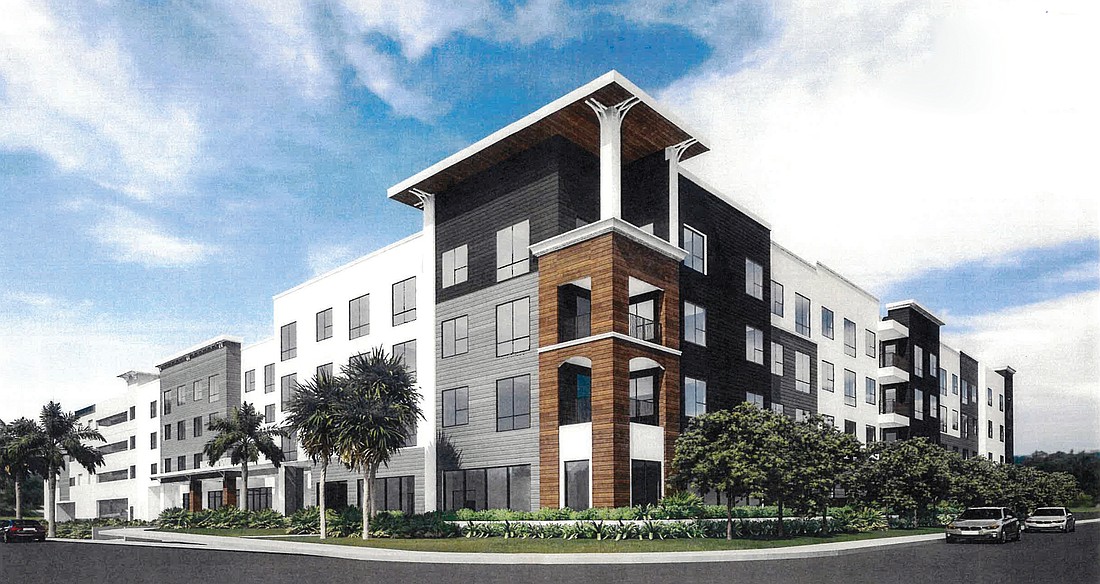- November 24, 2024
-
-
Loading

Loading

More than 90 minutes into an Oct. 5 public hearing on plans for a 10th Street apartment complex, Commissioner Erik Arroyo raised a question: What, exactly, is the commission’s role when it comes to reviewing development applications?
Arroyo spoke after a 15-minute round of questions from Commissioner Jen Ahearn-Koch that began with an inquiry about the placement of backflow preventers and concluded with a plea to save or relocate a mulberry tree slated for removal from the site. During his remarks, Arroyo said the project could theoretically be altered to provide more benefits for the community. Still, he asked whether the commission should be considering the merits of an application as submitted or asking a developer to change a proposal in the final stages of planning.
Personally, Arroyo thinks the first option is more appropriate. That wasn’t just a momentary rhetorical exercise for his fellow commissioners, either. Following the Oct. 5 meeting, where the commission approved the apartment plans, Arroyo said he was interested in continuing to explore the issues he raised. Arroyo wants to find a way to streamline the city’s development review process, something he thinks could be beneficial for residents, applicants and city officials.
“As a commission, we dictate policy that’s broad,” Arroyo said. “Sometimes we get bogged down by the minutia. Imagine the board of directors of McDonald’s deciding what color the trim on the uniform is going to be.”
Arroyo isn’t alone. Development Services Director Lucia Panica and other city leaders have placed a high priority on improving the development review process, city spokesperson Jason Bartolone said. Panica and other staff members are in the early stages of examining potential changes, and they intend to meet with stakeholders as part of an effort to make the review process more efficient.
“It’s too premature to say what form or how long that effort might take, but improving our level of service to the public in this area continues to be a top priority for the department,” Bartolone said in an email.
Complaints about the development review process aren’t new at City Hall, but over the past 15 years, officials have been reluctant to make any major changes. In 2013, the city sought to completely overhaul its zoning code, but by 2019, the commission agreed to abandon that effort and maintain the existing review procedures.
Those procedures vary depending on the nature of the project and the site of the development. Downtown, staff has the power to administratively review and approve most projects that comply with existing zoning regulations. In the rest of the city, developments with more than eight units or 10,000 square feet of commercial space trigger a series of public hearings in front of the Planning Board and City Commission. When the staff members leading the 2013 zoning code rewrite proposed expanding the use of administrative approval to expedite the city’s development process, it drew outspoken opposition.
Ahearn-Koch, who did not respond to a request for comment prior to publication, has been a strong defender of the city’s public hearing process. Ahearn-Koch was a founding member of the group STOP, formed in 2016 in part to oppose the use of administrative review for most projects. Although urbanists say longer review processes can obstruct development and generate counterproductive input from members of the community unfamiliar with planning principles, Ahearn-Koch has said public hearings can create a stronger project with contributions from residents and officials.
In 2018, after joining the commission, Ahearn-Koch drew a hard line against the expansion of administrative review.
“I cannot support that in any way, shape or form,” she said.
Although Arroyo thinks staff is equipped to handle some smaller development applications that currently go before the commission, he said administrative review isn’t the only way to streamline the city’s processes. He referred to the 10th Street apartment project: Prior to the Oct. 5 public hearing on the site plan, the city held a separate public hearing on a comprehensive plan amendment necessary to facilitate the project. Arroyo said similar material was covered at both hearings, and he suggested the process would be easier to follow if the city considered all the relevant applications at the same meeting.
“By having everything done in one meeting, it does not preclude the public from being involved,” Arroyo said.
Arroyo also took issue with the expense of a development through the review process. A representative for the developer behind the 10th Street apartments said the process is an impediment to the production of all housing, including affordable housing. In 2018’s Blueprint for Workforce Housing, the Florida Housing Coalition recommended administrative review as a policy for facilitating affordable housing, calling public hearings a time-consuming and costly process with unpredictable outcomes.
Arroyo suggested the city’s current procedures make it easiest for the wealthiest developers to get an application through the system and act as a greater obstacle for smaller builders.
“That’s something we need to be looking at from a fairness perspective: Is it fair for these individuals to be subjected to this?” Arroyo said.